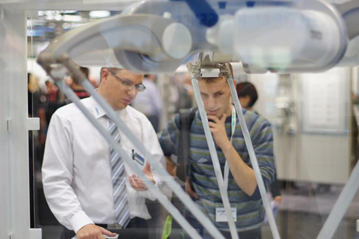Alongside the many new features at the next SPS IPC Drives Italia, on 21 – 23 May 2013, the event will also welcome the participation of Prof. Aldo Bonomi, director of Consorzio AASTER, who will be talking with the leading companies in the industrial automation macro-sector present at SPS Italia. The aim is to establish a new channel of dialogue with them in order to understand their needs and requirements, and envisage common development paths. More specifically, one of the goals is to promote the role of industrial automation in “ReMade in Italy” as a reindustrialisation process of the Italian economic system beginning with Italian production assets and local Italian capitalism. For such purpose, numerous in-depth interviews will be carried out with representatives of the companies exhibiting at SPS Italia and of other businesses in the supply chain. These interviews will form the basis of a research report that will be presented at the round table of 21 May – “Future scenarios of automation” – and a report summarising the issues that emerge from the research activities, with specific focus on the Food&Beverage sector, that will be used as a document for analysis at the round table of 23 May organised in association with CibusTec and involving speakers from the retail, food, packaging and industrial automation sectors – “Production processes in the food industry: automation to improve efficiency, productivity, safety, traceability, services and quality Meeting and dialogue between producers, food distributors and suppliers of industrial automation systems” -.
In the context of “ReMade in Italy” the industrial automation sector plays a strategic role.
• Firstly, because it represents one of the few sectors that remains competitive at this difficult structural time for the Italian economy;
• Secondly, because the product and process innovations of this sector can stimulate the gradual revitalisation of the competitive and productive power of numerous Italian manufacturing sectors;
• Thirdly, because it is a sector that combines the formal and global knowledge of metropolitan creative-cognitive capitalism with the contextual and site-specific knowledge of local capitalism, which is typically manufacturing in nature. Fourthly, because it is in this sector that many innovations in the areas of green economy and sustainability of production processes are implemented. Finally, because it represents a key bridge between Italian and German (or European) manufacturing.
[info]http://www.sps-italia.net/en/ [/info]

